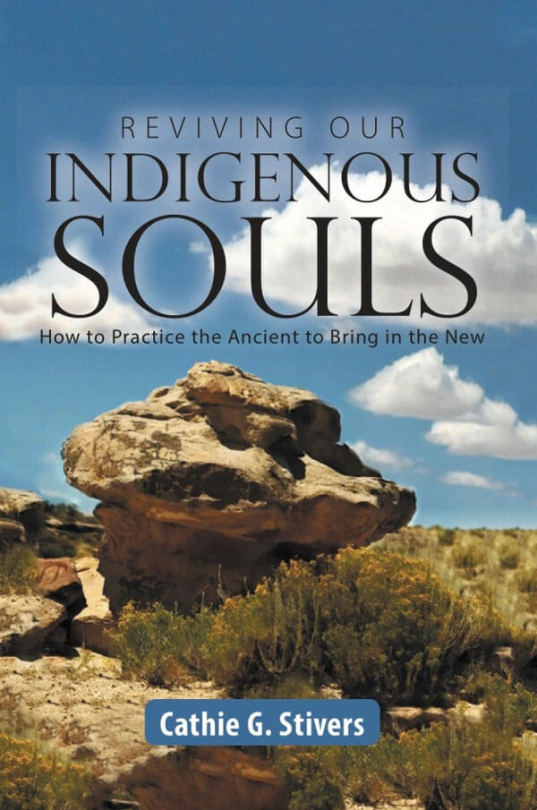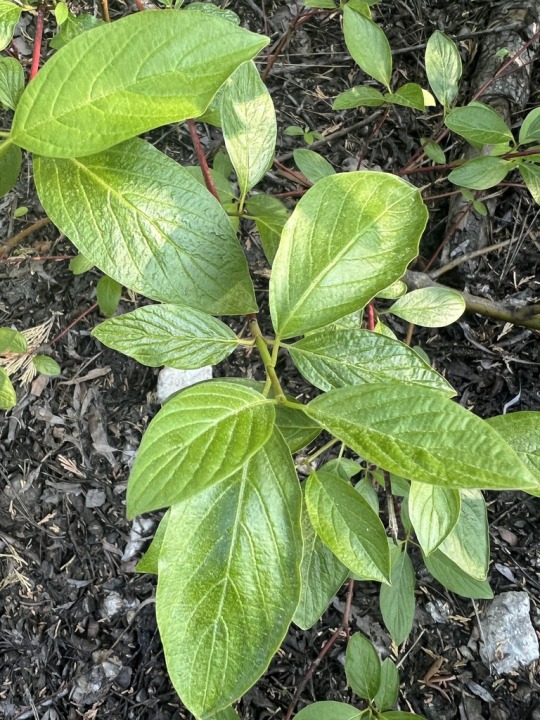#Community-driven environmental action
Explore tagged Tumblr posts
Text
Jamshedpur's Air Quality Crisis Tackled by Community Initiative
Vayu Veer program empowers marginalized groups to combat pollution through citizen science Innovative citizen-led air monitoring in Jamshedpur reveals alarming pollution levels, spurring grassroots action for cleaner air through the Vayu Veer program. JAMSHEDPUR – Clean Air Jharkhand has implemented the innovative Vayu Veer program, which involves the participation of youth and women from…
#Air pollution monitoring#Air Quality Index Jamshedpur#जनजीवन#Citizen science air quality#Clean Air Jharkhand initiative#Community-driven environmental action#Environmental grassroots movement#Life#Marginalized communities and pollution#PM2.5 levels in Jamshedpur#Public health and air pollution#Vayu Veer Jamshedpur
0 notes
Text
Empowering Youth: How Digital Innovation is Transforming Sustainable Development

View On WordPress
#2030 deadline#artificial intelligence#case study infographics#Climate Action#community celebration#Community Impact#Community Involvement#data analytics#data-driven#digital advancements#digital economy#digital engagement#digital inclusion#digital initiatives#digital initiatives for SDGs#digital innovation#digital literacy#digital natives#digital outreach#digital progress#digital resources#digital skills#digital technologies#digital tools#digital transformation#economic impact#educational impact#educational resources#environmental impact#environmental sustainability
1 note
·
View note
Text
academia sign as 𝔞𝔠𝔞𝔡𝔢𝔪𝔦𝔞 𝔞𝔢𝔰𝔱𝔥𝔢𝔱𝔦𝔠𝔰
academia (829)
𝔠𝔥𝔞𝔬𝔱𝔦𝔠 𝔞𝔠𝔞𝔡𝔢𝔪𝔦𝔞


aries / 1st house academia: aries in academia approaches learning with enthusiasm and a pioneering spirit. they thrive in competitive environments, enjoying subjects that allow them to take the lead, such as sports science, entrepreneurship, or anything requiring bold, innovative thinking. their learning style is hands-on and action-oriented, preferring to dive into projects rather than sit through lectures. quick to grasp new concepts, aries students excel in fast-paced, dynamic settings where they can showcase their initiative and drive. they are natural leaders in group work, often inspiring others with their energy and passion.
chaotic academia vibes: red bull, coffee, late-night study sessions, messy desk, sticky notes everywhere, highlighters galore, backpack overflowing, headphones tangled, running late, cramming, competitive studying, impulsive learning, last-minute cramming, energetic study sessions, motivational posters, pomodoro technique, study groups, mind maps, flash cards, music playlists
major & minor in college: history, english, psychology, theater, business, creative writing, philosophy, computer science, art history, sociology
𝔡𝔞𝔯𝔨 𝔞𝔠𝔞𝔡𝔢𝔪𝔦𝔞


taurus / 2nd house academia: taurus in academia is methodical and steady, approaching learning with patience and determination. they excel in subjects that involve tangible results or a connection to nature, such as agriculture, culinary arts, or finance. taurus students prefer a structured learning environment, where they can take their time to absorb information deeply and thoroughly. they have a strong memory and excel in retaining facts, often mastering subjects through repetition and consistent effort. their learning style is practical and grounded, focusing on real-world applications and long-term value.
dark academia vibes: leather-bound notebooks, vintage fountain pen, cozy sweater, warm coffee, comfortable armchair, candles, classical music, antique bookshelves, quiet library, natural light, slow & steady approach, consistent studying, structured routine, mindful studying, note-taking, reading extensively, researching deeply, essay writing, critical thinking, patience & perseverance,
major & minor in college: literature, history, art history, philosophy, classical studies, music, latin, greek, anthropology, environmental studies,
scorpio / 8th house academia: scorpio in academia is intensely focused and driven, diving deep into subjects that fascinate them, especially those involving psychology, criminology, or anything that uncovers hidden truths. they are natural researchers, drawn to mysteries and complexities, excelling in environments that require investigative skills and critical thinking. scorpio students prefer to study in private, where they can immerse themselves fully without distractions. they have a talent for uncovering details that others might overlook, and their determination to master a subject is unmatched. passionate and resilient, scorpio learners often emerge as experts in their chosen fields.
dark academia vibes: black coffee, leather jacket, intricate jewelry, vintage records, haunted library, gothic architecture, mysterious aura, intense gaze, quiet solitude, deep thoughts, intense focus, deep research, analytical thinking, critical analysis, debating, persuasive writing, problem-solving, independent study, night owl, passionate learning,
major & minor in college: psychology, philosophy, criminal justice, history, political science, sociology, anthropology, mythology, astronomy, creative writing,
𝔱𝔥𝔢𝔞𝔱𝔯𝔢 𝔞𝔠𝔞𝔡𝔢𝔪𝔦𝔞


gemini / 3rd house academia: gemini in academia is curious and versatile, thriving in environments where they can explore a wide range of subjects. they are natural communicators, excelling in fields like journalism, linguistics, or social sciences, where their quick wit and love for information can shine. gemini students prefer a dynamic, interactive learning environment, enjoying discussions, debates, and collaborative projects. their learning style is fast-paced and adaptable, allowing them to pick up new concepts with ease and shift focus between topics effortlessly. always eager to learn something new, gemini keeps their mind sharp by continuously seeking knowledge in various fields.
theatre academia vibes: script book, makeup bag, costumes, props, rehearsal space, stage lights, backstage passes, playbills, acting classes, impromptu performances, versatility, adaptability, improvisation, memorization, public speaking, character analysis, script analysis, ensemble work, storytelling, critical thinking
major & minor in college: theater, english, creative writing, communication studies, film studies, music, dance, history, psychology, sociology,
𝔠𝔬𝔷𝔶 𝔞𝔠𝔞𝔡𝔢𝔪𝔦𝔞


cancer / 4th house academia: cancer in academia is intuitive and emotionally connected to their studies, often drawn to subjects that resonate with their personal experiences, such as history, literature, or psychology. they excel in environments that feel nurturing and supportive, preferring to learn in a space where they feel safe and comfortable. cancer students have a strong memory, especially for details that evoke an emotional response, and they often approach learning with empathy and care. their learning style is reflective and deep, focusing on understanding the emotional and human aspects of any subject. sensitive to the needs of others, cancer can also be a compassionate and supportive peer in group settings.
cozy academia vibes: knitting needles, teacup, soft blanket, candles, cozy armchair, bookshelf filled with sentimental books, family photos, journal, soft music, homemade snacks, emotional intelligence, empathy, nurturing oneself, creating a comfortable study space, mindful studying, journaling, connecting with others, supporting others, patience & perseverance, emotional regulation
major & minor in college: english, history, psychology, sociology, social work, counseling, child development, family studies, art history, creative writing
𝔯𝔬𝔶𝔞𝔩 𝔞𝔠𝔞𝔡𝔢𝔪𝔦𝔞


leo / 5th house academia: leo in academia is confident and expressive, thriving in subjects where they can showcase their creativity and leadership, such as performing arts, literature, or leadership studies. they enjoy being at the center of discussions and excel in environments where their ideas and talents are recognized. leo students are passionate learners who bring enthusiasm to their studies, often inspiring others with their energy and charisma. their learning style is dynamic and interactive, preferring presentations and group projects where they can shine. with a natural flair for storytelling and self-expression, leo often excels in areas that allow them to be both creative and influential.
royal academia vibes: crown-shaped stationery, velvet robes, gold jewelry, vintage fountain pen, grand library, ornate furniture, elegant calligraphy, classical music, high-quality textbooks, personalized study supplies, confidence, leadership, public speaking, motivation, goal setting, networking, presentation skills, time management, creativity, passion
major & minor in college: history, political science, business, theater, art history, music, philosophy, classical studies, public relations, creative writing
𝔟𝔬𝔱𝔞𝔫𝔦𝔠𝔞𝔩 𝔞𝔠𝔞𝔡𝔢𝔪𝔦𝔞


virgo / 6th house academia: virgo in academia is analytical and detail-oriented, excelling in subjects that require precision and critical thinking, such as mathematics, science, or technical writing. they have a strong work ethic and prefer structured learning environments where they can methodically work through complex problems. virgo students are diligent researchers, often going above and beyond to ensure they fully understand a topic, and they have a knack for organizing information logically. their learning style is meticulous and focused, thriving on clear instructions and practical applications. with a keen eye for detail, virgo often excels in areas that demand accuracy and thoroughness.
botanical academia vibes: herbarium, plant journal, botanical prints, terrarium, gardening tools, natural light, plant-based stationery, herbal tea, nature-inspired décor, organized study space, organization, planning, time management, detail-oriented approach, note-taking, researching, problem-solving, critical thinking, patience, perseverance
major & minor in college: biology, environmental science, botany, horticulture, chemistry, agriculture, nutrition, health sciences, art history, creative writing
𝔯𝔬𝔪𝔞𝔫𝔱𝔦𝔠 𝔞𝔠𝔞𝔡𝔢𝔪𝔦𝔞


libra / 7th house academia: libra in academia is balanced and diplomatic, drawn to subjects that involve relationships, aesthetics, and justice, such as law, art, or social sciences. they excel in collaborative learning environments, enjoying discussions and group projects where they can exchange ideas and mediate differing opinions. libra students have a natural talent for seeing multiple perspectives, which makes them excellent at analyzing complex issues and finding harmonious solutions. their learning style is interactive and social, thriving in settings that allow for cooperation and mutual respect. with a strong sense of fairness and a love for beauty, libra often excels in areas that combine intellectual rigor with creativity.
romantic academia vibes: love letters, poetry collection, vintage jewelry, soft/pastel colors, romantic novels, flower arrangements, classical music, art galleries, beautiful stationery, cozy cafes, collaboration, harmony, diplomacy, balance, aesthetic appreciation, empathy, persuasion, critical thinking, creativity, open-mindedness
major & minor in college: english, history, art history, philosophy, psychology, sociology, communication studies, music, creative writing, design
𝔞𝔡𝔳𝔢𝔫𝔱𝔲𝔯𝔬𝔲𝔰 𝔞𝔠𝔞𝔡𝔢𝔪𝔦𝔞


sagittarius / 9th house academia: sagittarius in academia is adventurous and curious, drawn to subjects that expand their horizons, such as philosophy, travel, or global studies. they thrive in environments that offer freedom and exploration, preferring to learn through experience, travel, and broad, open-ended discussions. sagittarius students have a natural enthusiasm for big ideas and are often inspired by the pursuit of knowledge that challenges conventional thinking. their learning style is spontaneous and wide-ranging, excelling in areas where they can explore different cultures, beliefs, and philosophies. with an innate love for wisdom and truth, sagittarius often excels in fields that encourage lifelong learning and intellectual growth.
adventurous academia vibes: travel journal, global map, adventure novels, passport, backpack, camping gear, telescope, world atlas, foreign language textbooks, wanderlust-themed stationery, curiosity, open-mindedness, exploration, adaptability, risk-taking, global perspective, intercultural communication, problem-solving, independent study, passion for learning
major & minor in college: history, geography, anthropology, philosophy, foreign languages, international studies, environmental science, economics, creative writing, journalism
𝔴𝔦𝔫𝔱𝔢𝔯 𝔞𝔠𝔞𝔡𝔢𝔪𝔦𝔞


capricorn / 10th house academia: capricorn in academia is disciplined and strategic, favoring subjects that offer practical applications and long-term value, such as business, engineering, or finance. they excel in structured, goal-oriented environments where they can set clear objectives and work methodically towards achieving them. capricorn students have a strong work ethic and are adept at managing their time efficiently, often thriving on detailed planning and rigorous analysis. their learning style is focused and persistent, with a preference for mastering foundational concepts before advancing. with a keen sense of responsibility and determination, capricorn often excels in areas that require patience and sustained effort.
winter academia vibes: thick coat, scarf, warm coffee, cozy sweater, planner, bookshelf filled with textbooks, quiet study space, pen & paper, minimalist décor, structured routine, discipline, time management, goal setting, planning, persistence, problem-solving, critical thinking, researching, note-taking, long-term planning
major & minor in college: business, economics, law, political science, accounting, engineering, computer science, mathematics, history, philosophy
𝔣𝔲𝔱𝔲𝔯𝔦𝔰𝔱𝔦𝔠 𝔞𝔠𝔞𝔡𝔢𝔪𝔦𝔞


aquarius / 11th house academia: aquarius in academia is innovative and independent, gravitating towards subjects that involve technology, future trends, or social change, such as engineering, environmental science, or sociology. they thrive in learning environments that encourage original thinking and unconventional approaches, often preferring to explore new ideas and challenge established norms. aquarius students are skilled at grasping complex, abstract concepts and enjoy engaging in collaborative projects that push boundaries and promote collective progress. their learning style is progressive and exploratory, with a strong inclination towards experimenting with novel methods and solutions. with a keen interest in improving the world, aquarius often excels in fields that foster creativity and forward-thinking.
futuristic academia vibes: smartwatch, laptop, tech gadgets, futuristic eyewear, minimalist design, neon lights, sci-fi novels, futuristic architecture, virtual reality headset, sustainable products, innovation, problem-solving, critical thinking, future-oriented thinking, collaboration, interdisciplinary learning, ethical considerations, lifelong learning, adaptability, social consciousness
major & minor in college: computer science, engineering, physics, astronomy, artificial intelligence, environmental science, sociology, political science, psychology, philosophy
𝔬𝔠𝔢𝔞𝔫 𝔞𝔠𝔞𝔡𝔢𝔪𝔦𝔞


pisces / 12th house academia: pisces in academia is imaginative and intuitive, drawn to subjects that explore the arts, spirituality, or the human psyche, such as creative writing, music, or psychology. they excel in environments that allow for introspection and creative expression, often thriving in less structured settings that encourage personal interpretation and emotional depth. pisces students have a unique ability to grasp abstract concepts and connect disparate ideas, making them skilled at synthesizing information in innovative ways. their learning style is fluid and adaptable, with a preference for exploring topics through personal experiences and intuitive insights. with a deep sense of empathy and creativity, pisces often excels in fields that involve understanding and expressing the complexities of the human experience.
ocean academia vibes: seashells, aquarium, ocean-themed stationery, beach towel, nautical decor, marine biology books, beach reads, ocean-inspired jewelry, dreamcatcher, calming music, intuition, empathy, creativity, imagination, meditation, mindfulness, visualization, dream journaling, connection with nature, emotional intelligence
major & minor in college: marine biology, oceanography, environmental science, psychology, art history, creative writing, music, philosophy, sociology, religious studies,
all observations belong to @pearlprincess02
#academia#aries academia#taurus academia#gemini academia#cancer academia#leo academia#virgo academia#libra academia#scorpio academia#sagittarius academia#capricorn academia#aquarius academia#pisces academia#astrology#astro notes#astro observations#astro community#astrology observations#astro tumblr#astrology notes#astroblr#astrology aesthetic#dark academia#chaotic academia#theatre academia#cozy academia#romantic academia#winter academia#ocean academia
557 notes
·
View notes
Text


★ majors/higher education | signs in the 9th house ★

★ book a reading ★ ★ masterlist 1 ★ ★ masterlist 2 ★

★ aries in the 9th house ★
majors tied to action, leadership, and bold thinking—aries energy thrives in fields that require initiative and innovation. think degrees in law (debate, litigation), sports science (coaching, performance training), or military science (strategy, defense). you might also pursue something competitive like entrepreneurship or pre-med, where you’re constantly challenged to stay ahead. aries’ restless energy makes hands-on, fast-paced majors appealing, so engineering or mechanics could also fit. their love of adventure means international relations or global studies might appeal, especially if you want to explore different cultures or engage in diplomatic work. creative fields like film production or performing arts (theater, dance) might call to you, as aries loves self-expression and commanding attention. expect a major that keeps you moving and doesn’t confine you to routine; aries doesn’t do well in stagnant or overly theoretical environments. you might also gravitate toward activism-based studies, like political science or criminal justice, where you can champion causes and fight for change. your education could take unexpected turns, as aries energy often thrives in challenges and chaos—possibly leading you to switch majors mid-way when something more exciting catches your attention.

★ taurus in the 9th house ★
majors rooted in stability, beauty, and value-driven work. taurus energy is practical yet artistic, so degrees in interior design, architecture, or fine arts (sculpture, painting) align well with their aesthetic sensibilities. you might also find satisfaction in agricultural sciences or environmental studies, connecting with the earth and sustainable practices. taurus’ practical mindset leans toward finance, economics, or business—majors that ensure long-term security and tangible rewards. culinary arts or nutrition could appeal, especially if you enjoy creating or nurturing through food. degrees in real estate or hospitality management might align with taurus’ love of comfort and luxury, allowing you to curate beautiful spaces or experiences for others. taurus in the 9th craves knowledge they can use practically, so hands-on fields with clear career paths are key. psychology or social work might also resonate, especially if you’re drawn to steady, nurturing roles that help others build better lives. you could lean toward something like cultural studies or anthropology if there’s a focus on the sensory aspects of different traditions (food, art, craftsmanship). whatever you choose, it’ll likely be a slow, deliberate decision, as taurus takes their time to find what truly aligns with their values.

★ gemini in the 9th house ★
majors focused on communication, ideas, and variety—gemini thrives in fields that stimulate the mind and offer flexibility. journalism, creative writing, or media studies are strong fits, as gemini excels in storytelling and connecting with others. degrees in education (teaching, curriculum development) might appeal, especially if you’re drawn to sharing knowledge in dynamic environments. gemini’s curiosity could also pull you toward marketing, public relations, or advertising—majors that let you craft messages and explore trends. linguistics, foreign languages, or international studies might resonate, allowing you to learn and communicate across cultures. gemini’s love of tech and information could lead to fields like computer science, digital media, or data analysis. their versatility means you might combine seemingly unrelated interests, like a double major in psychology and graphic design or sociology and creative writing. gemini doesn’t thrive in rigid or overly specialized fields; they need variety, collaboration, and intellectual stimulation. philosophy or political science could also align, especially if you enjoy debating and exploring complex ideas. gemini in the 9th house often means your education will involve constant learning and adapting—expect internships, networking, and possibly changing majors to keep things fresh.

★ cancer in the 9th house ★
majors that center around nurturing, emotional connection, and building safe spaces for others. cancer energy thrives in fields like psychology, counseling, or social work—anything where you can provide care and emotional support. education might also appeal, particularly in early childhood development or special education, as cancer loves nurturing young minds. degrees in nursing, midwifery, or healthcare align with cancer’s caregiving nature, especially if you’re drawn to maternal health or pediatrics. cancer’s connection to home and history could lead to majors like interior design (creating comforting spaces) or history and anthropology, focusing on family lineage or cultural traditions. culinary arts or hospitality management could also resonate, especially if you love bringing people together through food or creating warm, inviting environments. cancer in the 9th might draw you toward majors that focus on healing or personal growth, like alternative medicine, holistic therapy, or even spiritual studies. film and media studies could appeal if you’re interested in storytelling with emotional depth. whatever you choose, it’s likely tied to themes of care, protection, and emotional resonance. you might also feel pulled toward studying abroad in places that feel familiar or tied to ancestral roots, seeking deeper connections with your personal history.

★ leo in the 9th house ★
majors centered around creativity, leadership, and self-expression. leo thrives in fields where they can shine, so performing arts (theater, dance, or music) might be at the top of your list. film studies or directing could appeal if you want to create bold, visual stories that captivate an audience. degrees in business, entrepreneurship, or leadership studies might also resonate, as leo loves being in charge and inspiring others. if you’re drawn to communication, public relations or marketing with a focus on branding and storytelling could fit. leo’s dramatic flair might pull you toward law—especially areas like courtroom litigation where your charisma and presence can shine. education, particularly as a professor or in roles that allow for mentorship, could also appeal, as leo loves to teach and lead. graphic design or fashion might be your calling if you’re drawn to creating visually impactful work. majors involving performance, creativity, or roles where you can stand out will feel most fulfilling. study abroad programs in culturally vibrant or artistic cities might inspire your studies. whatever you choose, it’ll likely be something where your natural talent for commanding attention and creating joy takes center stage.

★ virgo in the 9th house ★
majors grounded in precision, practicality, and service. virgo excels in detail-oriented fields, so degrees in healthcare (nursing, medical technology, public health) or environmental science could be strong fits. you might also thrive in majors like biology, chemistry, or nutrition, especially if you’re drawn to solving real-world problems. virgo’s analytical nature makes them well-suited to data-heavy fields like statistics, economics, or information systems. education is another natural fit, particularly in curriculum design or teaching science and math subjects. virgo’s focus on improvement could lead to degrees in psychology, especially counseling or behavioral analysis, where you help others refine and improve their lives. technical writing, editing, or publishing might appeal if you’re drawn to language and its meticulous application. environmental studies, agricultural science, or urban planning align with virgo’s interest in sustainable systems. virgo in the 9th house often seeks practical applications for higher learning, so your education might focus on how to create order and efficiency in the world. internships or research opportunities are likely to play a key role, as virgo thrives on hands-on experience. you’re also likely to be drawn to majors where you can serve others and create meaningful, measurable change.

★ libra in the 9th house ★
majors tied to beauty, harmony, and interpersonal connection. libra thrives in fields like art history, design, or fashion, where aesthetics and balance play a central role. degrees in law, especially focused on mediation or human rights, align with libra’s natural sense of fairness and justice. if you’re drawn to communication, public relations or marketing might appeal, particularly in industries like luxury goods or entertainment. libra’s love of people and relationships could also pull you toward psychology or sociology, exploring how humans connect and interact. education, especially in arts or humanities, is another natural fit—teaching subjects like literature, philosophy, or visual arts could fulfill your love for beauty and intellectual stimulation. majors like international relations or cultural studies align with libra’s global perspective and interest in diplomacy. libra in the 9th house also points to a strong desire for study abroad experiences, especially in culturally refined cities like paris, florence, or tokyo. you might also be drawn to interior design, event planning, or hospitality management—fields where you create harmonious and beautiful spaces. whatever you choose, it will likely involve collaboration, creativity, and a focus on creating balance in the world around you.

★ scorpio in the 9th house ★
majors steeped in intensity, mystery, and transformation. scorpio’s fascination with the unseen might lead you toward psychology, especially fields like forensic psychology, trauma therapy, or psychoanalysis. criminology, law enforcement, or investigative journalism are also natural fits, as scorpio thrives in uncovering hidden truths. degrees in medicine or research, particularly in areas like oncology, genetics, or pathology, align with scorpio’s need to transform and heal. scorpio’s deep, transformative energy might also pull you toward majors like philosophy, theology, or occult studies, where you explore life’s profound questions. anthropology, archaeology, or history with a focus on ancient civilizations could appeal if you’re drawn to uncovering buried secrets. scorpio’s intensity lends itself to creative fields as well—screenwriting, film directing, or novel writing in genres like horror, thriller, or fantasy might resonate. scorpio in the 9th house might also gravitate toward environmental studies or activism, especially if there’s a focus on regeneration or fighting for underrepresented causes. your educational journey may feel transformative and even karmic, with pivotal experiences that challenge your worldview and deepen your understanding of life’s complexities. you’re drawn to majors that let you explore the depths and create profound change.

★ sagittarius in the 9th house ★
majors focused on exploration, freedom, and the pursuit of knowledge. sagittarius in the 9th house practically screams for degrees in international relations, global studies, or cultural anthropology—anything that allows you to explore different cultures and philosophies. you might also be drawn to majors in philosophy, religious studies, or political science, as sagittarius loves diving into big-picture questions about morality and society. education is another natural fit, particularly higher education, where you could thrive as a professor or academic researcher. travel and adventure are key themes, so tourism management, hospitality, or even adventure filmmaking could appeal if you want to combine movement and creativity. sagittarius’ connection to optimism and growth might also lead you to fields like motivational speaking, public relations, or even sports management. if you’re drawn to physicality, degrees in physical education, sports science, or outdoor recreation could align with your adventurous spirit. study abroad programs or internships in foreign countries might feel essential to your academic journey. whatever you choose, it’ll likely involve expanding your horizons, chasing new experiences, and finding ways to bring a sense of inspiration and adventure to your studies and career.

★ capricorn in the 9th house ★
majors rooted in structure, ambition, and long-term success. capricorn in the 9th house suggests a preference for fields that offer tangible career paths and clear rewards, such as law, business administration, or economics. you might also excel in architecture, engineering, or urban planning, as capricorn thrives on building systems and structures that last. degrees in political science, public policy, or governance could appeal if you’re drawn to leadership roles and creating societal impact. capricorn’s disciplined energy might also lead you toward accounting, finance, or real estate—fields that align with your pragmatic mindset and interest in material security. academia or teaching might also appeal, especially if you’re focused on rising to leadership positions, like becoming a dean or head of a department. capricorn in the 9th values practicality, so you may prioritize internships, certifications, or degrees with clear professional applications. environmental science or sustainability studies could resonate, especially if you’re drawn to creating lasting change in ecological systems. your educational journey will likely be marked by hard work, steady progress, and a focus on achieving long-term goals, with a major that reflects your ambition and desire for mastery.

★ aquarius in the 9th house ★
majors centered around innovation, social change, and intellectual freedom. aquarius thrives in unconventional fields, so degrees in computer science, information technology, or artificial intelligence are natural fits. if you’re drawn to the social sciences, majors like sociology, political science, or human rights might appeal, especially if there’s a focus on progressive or revolutionary ideas. aquarius’ love of innovation might also lead to engineering, especially aerospace or renewable energy, where you can create futuristic solutions. degrees in environmental studies or urban planning could resonate if you’re interested in designing sustainable communities. aquarius in the 9th house suggests a fascination with global movements and humanitarian efforts, so international relations or global health might align with your vision for creating change. you might also be drawn to fields like psychology or neuroscience, exploring how the mind works and how it shapes behavior. aquarius values intellectual freedom, so you could pursue interdisciplinary studies that allow you to combine multiple interests, like technology and ethics or science and art. your educational journey might involve unconventional paths, like online programs, self-directed learning, or studying abroad in innovative or forward-thinking countries.

★ pisces in the 9th house ★
majors infused with imagination, spirituality, and emotional depth. pisces in the 9th house suggests a pull toward fields like creative writing, fine arts, or film studies, where you can channel your dreams into storytelling or visual expression. degrees in psychology or counseling might appeal, especially if you’re drawn to helping others navigate their emotions or uncover deeper truths. pisces’ spiritual energy might also lead you toward religious studies, theology, or even alternative medicine, focusing on healing and connection to the divine. majors in marine biology or environmental sciences might resonate, especially if you feel called to protect and explore the natural world. pisces also thrives in fields like music, dance, or acting, where emotional expression takes center stage. humanitarian studies or social work could be a fit, particularly if you want to help underserved populations or work for global peace. pisces in the 9th house also points to a love for escapism and exploration, so degrees in tourism, hospitality, or cultural studies might align with your wanderlust. your educational journey may feel fluid and intuitive, with shifts in direction driven by inner callings rather than external expectations.

★ book a reading ★ ★ masterlist 1 ★ ★ masterlist 2 ★


325 notes
·
View notes
Text
Pluto in Aquarius: Brace for a Business Revolution (and How to Ride the Wave)
The Aquarian Revolution
Get ready, entrepreneurs and financiers, because a seismic shift is coming. Pluto, the planet of transformation and upheaval, has just entered the progressive sign of Aquarius, marking the beginning of a 20-year period that will reshape the very fabric of business and finance. Buckle up, for this is not just a ripple – it's a tsunami of change. Imagine a future where collaboration trumps competition, sustainability dictates success, and technology liberates rather than isolates. Aquarius, the sign of innovation and humanitarianism, envisions just that. Expect to see:
Rise of social impact businesses
Profits won't be the sole motive anymore. Companies driven by ethical practices, environmental consciousness, and social good will gain traction. Aquarius is intrinsically linked to collective well-being and social justice. Under its influence, individuals will value purpose-driven ventures that address crucial societal issues. Pluto urges us to connect with our deeper selves and find meaning beyond material gains. This motivates individuals to pursue ventures that resonate with their personal values and make a difference in the world.
Examples of Social Impact Businesses
Sustainable energy companies: Focused on creating renewable energy solutions while empowering local communities.
Fair-trade businesses: Ensuring ethical practices and fair wages for producers, often in developing countries.
Social impact ventures: Addressing issues like poverty, education, and healthcare through innovative, community-driven approaches.
B corporations: Certified businesses that meet rigorous social and environmental standards, balancing profit with purpose.
Navigating the Pluto in Aquarius Landscape
Align your business with social impact: Analyze your core values and find ways to integrate them into your business model.
Invest in sustainable practices: Prioritize environmental and social responsibility throughout your operations.
Empower your employees: Foster a collaborative environment where everyone feels valued and contributes to the social impact mission.
Build strong community partnerships: Collaborate with organizations and communities that share your goals for positive change.
Embrace innovation and technology: Utilize technology to scale your impact and reach a wider audience.
Pluto in Aquarius presents a thrilling opportunity to redefine the purpose of business, moving beyond shareholder value and towards societal well-being. By aligning with the Aquarian spirit of innovation and collective action, social impact businesses can thrive in this transformative era, leaving a lasting legacy of positive change in the world.
Tech-driven disruption
AI, automation, and blockchain will revolutionize industries, from finance to healthcare. Be ready to adapt or risk getting left behind. Expect a focus on developing Artificial Intelligence with ethical considerations and a humanitarian heart, tackling issues like healthcare, climate change, and poverty alleviation. Immersive technologies will blur the lines between the physical and digital realms, transforming education, communication, and entertainment. Automation will reshape the job market, but also create opportunities for new, human-centered roles focused on creativity, innovation, and social impact.
Examples of Tech-Driven Disruption:
Decentralized social media platforms: User-owned networks fueled by blockchain technology, prioritizing privacy and community over corporate profits.
AI-powered healthcare solutions: Personalized medicine, virtual assistants for diagnostics, and AI-driven drug discovery.
VR/AR for education and training: Immersive learning experiences that transport students to different corners of the world or historical periods.
Automation with a human touch: Collaborative robots assisting in tasks while freeing up human potential for creative and leadership roles.
Navigating the Technological Tsunami:
Stay informed and adaptable: Embrace lifelong learning and upskilling to stay relevant in the evolving tech landscape.
Support ethical and sustainable tech: Choose tech products and services aligned with your values and prioritize privacy and social responsibility.
Focus on your human advantage: Cultivate creativity, critical thinking, and emotional intelligence to thrive in a world increasingly reliant on technology.
Advocate for responsible AI development: Join the conversation about ethical AI guidelines and ensure technology serves humanity's best interests.
Connect with your community: Collaborate with others to harness technology for positive change and address the potential challenges that come with rapid technological advancements.
Pluto in Aquarius represents a critical juncture in our relationship with technology. By embracing its disruptive potential and focusing on ethical development and collective benefit, we can unlock a future where technology empowers humanity and creates a more equitable and sustainable world. Remember, the choice is ours – will we be swept away by the technological tsunami or ride its wave towards a brighter future?
Decentralization and democratization
Power structures will shift, with employees demanding more autonomy and consumers seeking ownership through blockchain-based solutions. Traditional institutions, corporations, and even governments will face challenges as power shifts towards distributed networks and grassroots movements. Individuals will demand active involvement in decision-making processes, leading to increased transparency and accountability in all spheres. Property and resources will be seen as shared assets, managed sustainably and equitably within communities. This transition won't be without its bumps. We'll need to adapt existing legal frameworks, address digital divides, and foster collaboration to ensure everyone benefits from decentralization.
Examples of Decentralization and Democratization
Decentralized autonomous organizations (DAOs): Self-governing online communities managing shared resources and projects through blockchain technology.
Community-owned renewable energy initiatives: Local cooperatives generating and distributing clean energy, empowering communities and reducing reliance on centralized grids.
Participatory budgeting platforms: Citizens directly allocate local government funds, ensuring public resources are used in line with community needs.
Decentralized finance (DeFi): Peer-to-peer lending and borrowing platforms, bypassing traditional banks and offering greater financial autonomy for individuals.
Harnessing the Power of the Tide:
Embrace collaborative models: Participate in co-ops, community projects, and initiatives that empower collective ownership and decision-making.
Support ethical technology: Advocate for blockchain platforms and applications that prioritize user privacy, security, and equitable access.
Develop your tech skills: Learn about blockchain, cryptocurrencies, and other decentralized technologies to navigate the future landscape.
Engage in your community: Participate in local decision-making processes, champion sustainable solutions, and build solidarity with others.
Stay informed and adaptable: Embrace lifelong learning and critical thinking to navigate the evolving social and economic landscape.
Pluto in Aquarius presents a unique opportunity to reimagine power structures, ownership models, and how we interact with each other. By embracing decentralization and democratization, we can create a future where individuals and communities thrive, fostering a more equitable and sustainable world for all. Remember, the power lies within our collective hands – let's use it wisely to shape a brighter future built on shared ownership, collaboration, and empowered communities.
Focus on collective prosperity
Universal basic income, resource sharing, and collaborative economic models may gain momentum. Aquarius prioritizes the good of the collective, advocating for equitable distribution of resources and opportunities. Expect a rise in social safety nets, universal basic income initiatives, and policies aimed at closing the wealth gap. Environmental health is intrinsically linked to collective prosperity. We'll see a focus on sustainable practices, green economies, and resource sharing to ensure a thriving planet for generations to come. Communities will come together to address social challenges like poverty, homelessness, and healthcare disparities, recognizing that individual success is interwoven with collective well-being. Collaborative consumption, resource sharing, and community-owned assets will gain traction, challenging traditional notions of ownership and fostering a sense of shared abundance.
Examples of Collective Prosperity in Action
Community-owned renewable energy projects: Sharing the benefits of clean energy production within communities, democratizing access and fostering environmental sustainability.
Cooperatives and worker-owned businesses: Sharing profits and decision-making within companies, leading to greater employee satisfaction and productivity.
Universal basic income initiatives: Providing individuals with a basic safety net, enabling them to pursue their passions and contribute to society in meaningful ways.
Resource sharing platforms: Platforms like carsharing or tool libraries minimizing individual ownership and maximizing resource utilization, fostering a sense of interconnectedness.
Navigating the Shift
Support social impact businesses: Choose businesses that prioritize ethical practices, environmental sustainability, and positive social impact.
Contribute to your community: Volunteer your time, skills, and resources to address local challenges and empower others.
Embrace collaboration: Seek opportunities to work together with others to create solutions for shared problems.
Redefine your own path to prosperity: Focus on activities that bring you personal fulfillment and contribute to the collective good.
Advocate for systemic change: Support policies and initiatives that promote social justice, environmental protection, and equitable distribution of resources.
Pluto in Aquarius offers a unique opportunity to reshape our definition of prosperity and build a future where everyone thrives. By embracing collective well-being, collaboration, and sustainable practices, we can create a world where abundance flows freely, enriching not just individuals, but the entire fabric of society. Remember, true prosperity lies not in what we hoard, but in what we share, and by working together, we can cultivate a future where everyone has the opportunity to flourish.
#pluto in aquarius#pluto enters aquarius#astrology updates#astrology community#astrology facts#astro notes#astrology#astro girlies#astro posts#astrology observations#astropost#astronomy#astro observations#astro community#business astrology#business horoscopes
121 notes
·
View notes
Text
FTH 2024: Supported Nonprofit Organizations
Here are the nonprofit organizations that will be supported by this year's FTH auction. Many of these orgs will be familiar from last year's list, but we've cycled in some new groups as well. In particular, because it's a major election year in the US, we've brought in (or brought back) organations focusing on voter enfranchisement.
If you are a FTH creator and you want to ask your bidders to support an organization that’s not on the list, please read our policy on outside organizations here.
Bellingcat *
Bellingcat is an independent investigative collective of researchers, investigators and citizen journalists brought together by a passion for open source research in the public interest.
Civil Rights Education and Enforcement Center *
The Civil Rights Education and Enforcement Center (CREEC) is a nonprofit legal organization that fights for liberation and equity through the lens of intersectional disability justice.
In Our Own Voice: National Black Women’s Reproductive Justice Agenda *
A national-state partnership focused on lifting up the voices of Black women leaders at the national and regional levels in our fight to secure Reproductive Justice for all women, girls, and gender-expansive individuals, NBWRJA delivers proactive advocacy and policy solutions to address issues at the intersections of race, gender, class, sexual orientation and gender identity.
Life After Hate
LAH provides support to people leaving hate groups, and providing pluralism education and training to vulnerable young people.
Middle East Children's Alliance *
MECA is a nonprofit organization working for the rights and the well-being of children in the Middle East. They collect funds in order to provide direct aid, financial support for community projects, water purification systems, and university scholarships, and also create educational and cultural programs in the US and internationally to increase cultural understanding.
National Network to End Domestic Violence *
NNEDV offers a range of programs and initiatives to address the complex causes and far-reaching consequences of domestic violence.
Never Again Action *
A Jewish-led mobilization against the persecution, detention, and deportation of immigrants in the United States, NAA takes on campaigns against detention centers and ICE training programs, and organizes mutual aid and deportation defense.
Razom *
Razom initiates short and long-term projects, or collaborates on existing projects with partner organizations, which help Ukraine stay on the path of fostering democracy and prosperity
Sherlock’s Homes Foundation *
SHF provides housing, employment opportunities, and a loving support system for homeless LGBTQ+ young adults so that they can live fearlessly as their authentic selves. Within these homes, young adults learn about responsibility, accountability, financial independence, life skills, and how to love themselves
Spread the Vote
STV helps eligible voters make their voices heard through voter education, supporting voters through the process of getting necessary ID, and advocating against voter suppression laws.
Violence Policy Center *
VPC works to stop gun death and injury through research, education, advocacy, and collaboration; exposes the profit-driven marketing and lobbying activities of the firearms industry and gun lobby, and offers unique technical expertise to policymakers, organizations, and advocates.
VoteRiders
VR works to help all citizens exercise their right to vote. It informs and helps citizens to secure their voter ID as well as inspires and supports organizations, local volunteers, and communities to sustain voter ID education and assistance efforts.
Umbrella: Environmental orgs
For the past four years, FTH has supported one “umbrella” cause: we invite participants to donate to their own local grassroots organization, while also suggesting a handful of exemplary organizations working in communities where the need is especially acute. This year our umbrella category is environmental organizations.
Pollinator Partnership *
Deploy/Us *
Together Bay Area
Wildlands Restoration Volunteers
Coral Restoration Foundation *
++
Organizations marked with an asterisk (*) allow for international donations directly through their websites. The orgs without asterisks may take international donations through a paypal or venmo account. If you are a non-US-based bidder/donor and you are having trouble finding an organization to which you can donate, please email us directly at fandomtrumpshate @ gmail . com.
106 notes
·
View notes
Text
Something to just consider is that Armand is a collectivist. Culturally I think this makes sense, considering he would've been raised in his foundational years in that sort of culture that values collectivism over individualism. He's also had to live in several high control environments afterwards, which demanded servitude, where putting himself first would've led to trouble, up to and including death. In the Children of Darkness, for example, the very idea of seeking pleasure at all is against the commandments, and since he is forced to lead this group (under careful surveillance), he can not therefore show if he even wishes to seek pleasure, because this would disrupt the collective thought, and further, place a level of threat upon himself for disobeying the laws he's meant to be upholding. He's at threat that he can be killed for it, because that's how such laws are handled. So he necessarily can not hold an individualistic, self serving, opinion, and hope to live, and lived in that kind of envoirment for centuries. Even the TdV carries on the same sort of traditions to less strict, more secular, degrees. Seeking pleasure in TdV is rewarded, even exhaulted, but the great laws are still imposed to the level of threat which is death, and everyone is always surveilling each other on this matter. He's a collectivist, especially in situations which impose certain, or uncertain threat of violence, for going against the group, or person, as in such a situation being individualistic is perhaps the last thing you may get to ever do. Nothing personally driven, therefore, seems that worth it provided the risk.
Whether he remembers this earliest period of childhood, or not, those sorts of values (likely positive then as things like sharing, community building, reaching mutually beneficial decisions, aid, and consideration of others feelings). Ingrained into his personality, and he doesn't have the kind of amnesia where it appears his personality was fundamentally changed by it. Rather, that since it's more of a dissociative amnesia barrier protecting him from traumas, that his personality would rather be fragmented, as opposed to altered. (Meaning such values are still there, but are now also acting alongside various further alteration to what is means to be in collective. And that if such amnesiac parts ever do surface, it is only reacting as if it is re-experiencing, and in the same context to the trauma. Depending on how complex this part is it could take on further environmental inputs while in this state, developing or simply having, essentially, its own personality... but I digress).
He does things for the group, which can at times only be one person, more-so than he serves himself. Placing what serves situation and context more highly that individual personal traits and feelings. But, by thinking he has no self, he naturally falls to self justifying everything wrongful he personally does, as for the benefit of the group. It's a cognitive distortion which doesn't recognize it's own selfishness because it sees itself as being selfless regardless of actual outcome. Further, this makes it so he takes no responsibility for others actions he may have caused, or to how a situation came about because of himself, if he doesn't then apply having any self to that situation. He'll bend to opinion even if its false, and create or even take on an entire role of falsehood, if he believes it serves a mutual benefit.
He uses this as a kind of shield against the world he must fundamentally view as threatening, and imposing, with very limited spaces of safety. But doesn't impose himself in healthy ways, therefore becomes an enabler of certain toxic behaviors getting out of hand, and creating unsafe environments. Desiring such places being controlled, and predictable, environments, but not fostering what's needed for that, and certainly not in a healthy way. Rather lending to manipulating others, or using threats, or force, to make it so he's secure in this. Again, self justifying that it's for a collectivist benefit. If he does at all recognize his own selfishness it's due to how he's able to come out of his own cognitive distortions, and dissonance, and admit faults and failings. Seeing that hiding his own faults and failings from others is something selfish, and therefore that he does indeed have a self there. In doing so, developing an understanding that he acts as a self in all things, and therefore understanding the effects of his actions are actually his. (Or else falling right back into the distortions). He has to be selfish, in a way, to ever be truly selfless. If that's really his goal.
To want something for itself, as opposed to some other means. To want good, love, and safety, for itself as opposed to what it does. He has to develop a sense of his own idea of these things, in order to form a consistent and more secure identity, not founded or attached to a group or person. And further needs whatever self that is, to be embraced, by himself, and not insecure in how others would react to it. To not be afraid of this self expression and personal desire, thought, opinion, feeling, and so on. By developing his own person he'd be able to better embrace his own bad qualities, even change them. As he then feels he has such agency, and isn't just simply reacting and serving to the world around him. I think there's something in how he changes Daniel which says he is moving in sort of this direction, there's something in how it appears he's roaming around on his own right now that suggests he is on a journey of this sort. I'm not expecting greatness out of it, but I am thinking there will be progress for present day Armand in future seasons. I think he is capable of change, and is not fundamentally as he appears. (And this would align to his narrative arc in the books anyway.)
And just also like I don’t think he knows entirely where the boundaries of anything really are or should be. Between himself and others or like where right begins and wrong ends and so forth. Not a moment in his memorable life, mortal or immortal, hasn't been without the presence of vampires, and therefore conditioned more under vampiric understandings as opposed to human ones. And because he's disconsidering of self, and hasn’t exactly been modeled what these should be, he's not able to function sanely in his environment. He's not sane I think I can say. But I do think he’s someone who learns experientially, and can do that on his own, so where those must lie he’s not in total lack of awareness either.
#armand#armand character analysis#iwtv#iwtv character analysis#character analysis#interview with the vampire#this would explain why he just never sees himself as a true leader of anything but instead a follower forced to lead#and for some people they do just genuinely like submission that's just their own expression of self#but he functions in this form of reality that is actually unreality so he can't even see he's the owner of his own submission.#even if he is doing it because he genuinely likes it and feels its a part of him he views it as someone else owning him as#opposed to himself giving over to be submitted by them#He doesn't recognize how much power he actually has in any situation because he functions on an understanding he has no power of self if no#a self at all to have such power to begin with.#Its gross really because he so obviously is seeking to replicate his relationship with Marius as opposed to a healthier version of it#one which actually honors and recognizes his own person and autonomy and doesn't exact literal master slave dynamics#and by buying into his false reality you are enabling in his own distortions. But they are actually how he views the world#which you can't necessarily just flat out deny without denying his 'person'. But can of course question and challenge.
28 notes
·
View notes
Text
Avatar Rant: Two Avatar takes that bother me
(Pssst! This was originally posted on reddit, but I liked it so much I decided to post it onto my this account! Here's a link to the original if you'd rather read it there!)
So, I saw a semi-viral tweet a while back that bothered me because it not only felt like a complete misunderstanding of the point of Avatar as a film franchise, but also just a very childish view of how societies and different communities function. I can't find it though (I didn't interact with it and it has since been buried) so I apologize for not being able to give the best context.
It was your typical RDA sympathizing humanity first take (makes sense, the account that tweeted it was a walking red flag) that claimed that the na'vi were stupid for not accepting human advancement and technology, that humanity should always put its preservation first, and that the RDA were simply prioritizing the well being of their people whilst the na'vi wanted them gone. I want to start by addressing the latter take(s).
The first and second movies make it very clear that the RDA are NOT prioritizing the survival of Earth or humanity. They are a money hungry organization that want to monetize pandoran resources to their dying people in hopes to squeeze out whatever little money they have left. The people of Earth are said to be protesting them for that very reason, every solution to their planet's problems that they have discovered is insanely expensive and inaccessible to anyone below the upper class one percent. The RDA don't care about humanity, they care about profit, which is the exact reason why their actions are so callous in the films.
There are certainly humans that want to preserve humanity, but I truly cannot wrap my head around how you can watch either film and come to the conclusion that it is the RDA that wants the best for humanity. Avatar is not a "human bad" movie, it is a "corporate greed bad" movie, which is reflective of real life environmental issues. The individual is green, the individual recycles and doesn't litter, the individual cleans their local rivers and sea shores. However, the powerplants continue to polute our air, the corporations continue to flood our oceans with plastic, the rich continue to cut corners and burn the air with private jets.
I truly believe the reading of Avatar as an anti-humanity movie is what has lead to people thinking the RDA are the "good guys". It is because they actually believe the RDA are supposed to represent humanity and their will to keep surviving (and that James Cameron is portraying them as wrong for that), when it is clear they are a representation of the corporate greed that leads to environmental damage and the destruction of humanity.
As for the belief that the na'vi are hostile and somehow wrong for not caring to "advance" in the way humanity did, that is just flat out wrong. When it came to the respectful, peaceful humans such as Grace and her team, the na'vi were incredibly welcoming. I mean, Grace built an entire school for them and taught them human language and other human academics, so clearly they aren't against learning from humans. Again, Avatar is clear about the fact that humans as a collective aren't bad, corporate greed is.
However, why should the na'vi "advance" when there is no need to? Innovation is built on the back of necessity, and in a world where there is no need for certain technological advancements, why should the na'vi chase it? Why do they need phones and tablets and video games and McDonalds? They are living just fine without it. This idea that every society needs to be "modernized", even when they function just fine without said modernization has always driven me up a wall.
This entitlement from the western world is what leads colonial brained weirdos to try and go to indigenous islands and force religion or their world view upon them, because they believe that if a society doesn't function like the "modern" world, it is wrong. The na'vi don't need currency, or modern tech, or modern trends or fast food. They aren't perfect, but they also aren't in a desperate situation that would call for innovation or some sort of technological evolution. They are fine, they don't need nor even want it, and it is strange to believe humanity is in their right to force it upon them.
I'll stop this here because it's getting too long, I would love to hear your thoughts. Last time I made a post in this vein I got some really interesting responses, I couldn't reply to all but I'll try and reblog if that means anything!
#long post#avatar#avatar: the way of water#avatar the way of water#atwow#avatar: frontiers of pandora#jake sully#lo'ak#neteyam#neytiri#tsireya#na'vi#na'vi avatar#avatar rda#miles quaritch#aonung#resource development administration#spider socorro#avatar lore#james cameron avatar#james camron#tuktirey#ronal#tonowari#recom avatar#avatar recoms#avatar humans#Nobody's Avatar Analysis
77 notes
·
View notes
Text
Anthropologist Peggy Reeves Sanday made a study of 150 tribal societies in an effort to understand the origins of male domination. In her resulting book Female Power and Male Dominance, she theorizes: “The evidence suggests that men and women respond differently to stress. Men almost always respond to stress with aggression, though not necessarily with dominance. Men seek to preserve a threatened identity by retaliating by force and engaging in competition for status with other men.” (Full quote here.)
She goes on to talk about how women respond to male aggression; the strategy is almost always a conciliatory one. When threatened with survival, men as a group dial up the violence, and women as a group dial it down. A few women may fight back; but the group of women as a whole will back all the way down, and even regress to a subordinate position, especially when men start killing women.
Men identify inwardly, with their own status in the group being a primary consideration. Women outwardly, with the survival of the group as a whole being most important.
Sjöö and Mor in The Great Cosmic Mother talk about the evolution of humans and how it has been primarily (if not in totality) driven by women. In fact, they argue, without the evolution of early women from estrus to menstruation, we would never have become what we are. The females of the species moved us from primate to fully human, and men, with their fear of loss of identity and ensuing aggressive dominance have done almost nothing except hold us back: “The only thing blocking or neutralizing this patriarchal-primate urge toward dominance-control of the human species is the more advanced capacity for human creative communal process via social-sexual bonding evolved by the women of our species.” (Full quote here.)
Women have tried for millennia to drag men into a more evolved form of organism. But the slightest hint of stress challenges their fragile sense of identity and this drives them back into primate behavior. It does not matter that, as a result, they lash out at their own creators; it doesn’t matter that they are practicing self-annihilation on a global scale. They don’t have the capacity to understand why this is bad. Men will make a great fuss about evolutionary drives and chasing after fertile women and desperate survival of their own genes—but their actions prove otherwise. They will kill their pregnant partners, their children, and themselves when their ego is threatened. There are countless examples of this. Countless. If men as a class cared about the survival of their own genes or the species in general, they would seek to change their behavior and the behavior of the men around them. But they don’t, and so they don’t. They can’t, and so they can’t. They understand only their own needs and desires, moment by moment.
Evolution requires outward thinking. The capacity to think, conceive, plan, strategize, empathize, outside of oneself. Outside of time and outside of the moment. Women live and breathe this. Men can merely mimic it. They can ape women’s long-range thinking, their capacity for parallel lines of thought, but they can never master it. They are excellent at mimicry. But the only thing they can ever truly master is self-pleasure and, ultimately, death.
My point, if I indeed have one, is that it’s pointless to try and save men. We are experiencing a rapid increase in environmental stressors. Climate change, resource depletion, species extinction, etc. We are watching moment by moment as males respond by increasing aggression and clamping down on female liberty. It’s only going to get worse from here. At what point do women respond in a different way? That’s what I want to know.
This is no longer about isolated tribes. This is global. We are rapidly approaching the point where we all either evolve together or die together. The half of the species that has always led the way in evolution is women. What will they do? How will they respond to the mother of all male temper tantrums, the one that threatens to once and for all end the species for good?
I believe that my desire to observe the answer to that question is the only reason I’m still here. That is my reason for being. What will women do? Will they evolve? Or will they die? Which will it be? Any guesses?
13 notes
·
View notes
Text
Reviving Our Indigenous Souls

In Reviving Our Indigenous Souls: How to Practice the Ancient to Bring in the New, Cathie G. Stivers examines the resurgence of Indigenous wisdom as a response to the alienation, environmental degradation, and spiritual disconnection pervasive in modern Western society. Drawing from diverse Indigenous cultures and spiritual practices, Stivers advocates for a return to ancestral ways of knowing and being that respect and harmonize with nature, family, and community.
Stivers' central thesis is that modern society can heal itself by reclaiming Indigenous values and reconnecting with ancient practices that emphasize interconnectedness and reciprocity. To support this journey, she outlines a framework for integrating these values into contemporary life. This book serves as a call to action for readers to reconnect with their own "Indigenous soul"--a concept Stivers uses to refer to the inherent wisdom, respect for nature, and spiritual connection that she believes reside within all humans.
Embracing the "Indigenous Soul"
Stivers begins by discussing the concept of the "Indigenous soul," which she describes as a deep-seated, intuitive awareness that everyone holds, irrespective of cultural background. This soul represents our innate sense of connection to all living things and to the cycles of the earth. The author argues that Indigenous is neither a culture nor a people. It's a way. The Indigenous way is the embodied ancient memory of how to be fully human, and it's encoded in your soul, no matter who your ancestors are. Hidden deep and dormant within your Indigenous soul is your identity and your life's purpose, longing for you to remember them and put them into action.
According to Stivers, the Indigenous soul has been repressed by the pressures of a consumer-driven, individualistic society that prioritizes material success over spiritual wellbeing and community cohesion. The author argues that a disconnection from this Indigenous soul leads to suffering, both personally and collectively, manifesting in issues such as environmental exploitation, social injustice, and mental health crises. However, by reconnecting with this lost part of ourselves, Stivers believes we can address the core issues underlying many of these challenges.
Learning from Indigenous Practices
Throughout the book, Stivers explores a range of Indigenous practices, including rituals, storytelling, communal gatherings, and nature-based spirituality. She emphasizes that Indigenous cultures maintain a profound respect for nature, viewing it not as a resource to be exploited but as an extension of the self. This reverence for the natural world contrasts sharply with modern practices of consumerism and environmental degradation, and Stivers argues that adopting this respect is essential for sustainable living.
One key aspect of Indigenous practice that Stivers discusses is the importance of ritual in maintaining community bonds and spiritual health. Rituals, she explains, can help modern individuals create sacred space and time in their lives, even in urban or industrial settings. Through rituals, individuals can celebrate seasonal cycles, honor ancestors, and create moments of reflection, which foster a deeper connection to themselves and the environment.
The Role of Storytelling
Stivers devotes considerable attention to the role of storytelling in Indigenous traditions, viewing it as a critical tool for passing down knowledge, cultural values, and ethical guidelines. Indigenous storytelling, according to Stivers, serves not only to entertain but to teach important life lessons and reinforce the interconnectedness of all beings. She notes that in Indigenous cultures, stories often emphasize the unity between humans, animals, and nature, encouraging listeners to recognize their place in a larger ecological and spiritual system.
In a society saturated with information but often devoid of wisdom, Stivers suggests that reclaiming the power of storytelling could be transformative. She encourages readers to seek out and share stories that emphasize unity, compassion, and respect for the natural world. By doing so, individuals can help reshape cultural narratives toward sustainability and respect for all life.
Reclaiming Rituals for Modern Healing
One of the primary ways that Stivers suggests modern readers can reconnect with their Indigenous soul is by incorporating rituals into their daily lives. While many of these rituals are rooted in Indigenous traditions, Stivers encourages readers to adapt them to their own circumstances and needs. Simple acts--such as lighting a candle with intention, creating a small altar at home, or acknowledging the four directions (a common Indigenous practice to honor different aspects of the natural world)--can cultivate a sense of the sacred and foster mindfulness.
She also discusses the healing potential of community rituals, which bring people together and reinforce bonds. In an increasingly individualistic society, where people often feel isolated and disconnected, Stivers emphasizes the importance of communal activities that restore a sense of unity and mutual support.
Practicing Reciprocity and Gratitude
A recurring theme in Stivers' work is the concept of reciprocity, which she argues is a fundamental aspect of Indigenous spirituality. Indigenous worldviews often emphasize giving back to the earth and community, viewing resources as something to be shared rather than exploited. Stivers believes that modern society can benefit from incorporating this principle by practicing gratitude and consciously giving back--whether through acts of service, mindful consumption, or environmental stewardship.
Stivers suggests that readers incorporate gratitude rituals into their daily lives, such as expressing thanks for food before meals or acknowledging the people, animals, and plants that contribute to their well-being. This practice, she asserts, can shift perspectives from entitlement to appreciation, fostering a more sustainable relationship with resources.
Transforming Society Through Indigenous Wisdom
Stivers ultimately sees the revival of Indigenous practices not as a nostalgic return to the past, but as a way to build a more harmonious and sustainable future. She advocates for a cultural shift toward values that prioritize community, environmental stewardship, and spiritual connection. This transformation, according to Stivers, must begin on an individual level, as people awaken to the Indigenous soul within them and begin to act in ways that align with its wisdom.
In addition, Stivers calls for broader social change, encouraging leaders and institutions to consider how Indigenous principles can inform policy and community structures. By reorienting society around principles of reciprocity, interconnectedness, and respect for nature, she believes that humanity can address many of the existential threats it currently faces.
Conclusion
Reviving Our Indigenous Souls by Cathie G. Stivers offers a compelling and thought-provoking perspective on how individuals and society as a whole can benefit from reconnecting with Indigenous wisdom. Stivers' exploration of Indigenous practices, from ritual and storytelling to gratitude and reciprocity, provides practical steps for readers seeking to incorporate these values into their lives. By following Stivers' guidance, readers can cultivate a deeper sense of purpose, connection, and responsibility toward the earth and one another. Ultimately, the book calls for a transformative shift in both personal and cultural paradigms, envisioning a future where humanity lives in harmony with nature and each other by honoring the ancient to create the new.
Every person alive today, modern or tribal, has a soul that is original, natural, and, above all, Indigenous in one way or another. Every human on this planet has ancestors whose languages, myths and spirituality were taken away, exploited, or destroyed by a soulless, culture-crushing mentality. What is Indigenous--in other words, wild, untamed and unrestricted--in each of us has been banished from our life. We're taught to believe that our rational mind is actually the center of our being. Like the conquering, modern culture we belong to, we understand the world only with the mind, not with the Indigenous soul. Reviving Our Indigenous Souls is a guide to awakening the Indigenous way of being encoded in our soul. The more we consciously remember our Indigenous soul, the more we physically remember how to be fully human. Read a sample of Reviving Our Indigenous Souls.
#consciousness#spirituality#indigenous#indigenous cultures#indigenous peoples#wisdom#storytelling#ritual#human potential
10 notes
·
View notes
Text
President Biden was good at many things, including an amazing ability to fiddle-fuck around and slow walk important projects. Hence, we're stuck, again, with the right-wing MAGA cult and its leader that will delay again important actions, such as allocation of water from the Colorado River.
Excerpt from this story from Inside Climate News:
The Biden administration on Wednesday released four alternatives to address the drought-stricken Colorado River’s water shortages, giving seven states, 30 tribes and the 40 million people who rely on the river a taste of how the vital waterway will be managed in the coming decades.
But the announcement offers little in the way of hard details, with a draft environmental impact statement analyzing the impacts of the Department of Interior’s proposed alternatives pushed back to next year. The states, meanwhile, remain divided over the path forward to deal with shortages on the river. Over the past year, the seven Colorado River Basin states—Arizona, California, Colorado, Nevada, New Mexico, Utah and Wyoming—along with tribes and the federal governments have been in negotiations over the “Post-2026 Operations” for the river that will dictate how to deal with water shortages. The river’s current drought guidelines, drafted in 2007, will expire at the end of 2026.
“We continue to support and encourage all partners as they work toward another consensus agreement that will both protect the long-term stability of the Colorado River Basin and meet the needs of all communities,” said Laura Daniel-Davis, the acting deputy secretary of the Department of Interior. “The alternatives we have put forth today establish a robust and fair framework for a Basin-wide agreement. As this process moves forward, the Biden-Harris administration has laid the foundation to ensure that these future guidelines and strategies can withstand any uncertainty ahead, and ultimately provide greater stability to the 40 million water users and the public throughout the Colorado River Basin.”
The river that enabled the Southwest’s rapid growth and vital agricultural production has seen its flows diminished roughly 20 percent over the past two decades by a megadrought. Climate change and years of overuse of the river’s resources have led the system’s massive reservoirs—lakes Mead and Powell—to fall to just a third of their capacities. That prompted steep cuts in allocations of the river’s water to Arizona, California and Nevada, and tense negotiations over its future. Further declines at the reservoirs could cause their respective dams to reach minimum power pool, where they can no longer generate electricity, or dead pool, when the water drops too low to flow through the concrete dams’ plumbing.
The Colorado River Basin is regulatorily split in two. The Upper Basin consists of Colorado, Wyoming, Utah and New Mexico. The Lower Basin is composed of Arizona, California and Nevada, which historically has used more of the river. Under the 1922 Colorado River Compact, which divided up the river’s resources and is the bedrock document for how it is governed, the Upper Basin is required to allow the Lower Basin states’ allocation of water to flow downstream before it can use its half of the river. If the Upper Basin fails to send the required amount of water, its own allocation could be cut.
7 notes
·
View notes
Text
The Social Consequences of Marketing
Marketing, while essential for businesses and economies, has also been criticized for causing harm to society in various ways. Here are some significant ways in which marketing has negatively impacted society:
1. Promotion of Consumerism
Excessive consumption: Marketing often encourages the idea that happiness and success are linked to material goods, promoting a culture of consumerism. This has led to excessive consumption, debt, and environmental damage, as people are driven to buy more than they need.
Planned obsolescence: Companies sometimes design products with limited lifespans, encouraging consumers to buy new versions frequently. This practice contributes to waste, depletion of resources, and increased consumer spending.
2. Exploitation of Insecurities
Body image and self-esteem: Advertising in industries like fashion, beauty, and fitness often exploits people's insecurities by promoting unrealistic beauty standards. This can lead to mental health issues such as low self-esteem, anxiety, body dysmorphia, and even eating disorders.
Fear-based marketing: Some marketing strategies use fear to sell products, such as insurance, security systems, or health products, by making consumers feel unsafe or inadequate without them.
3. Targeting Vulnerable Populations
Children: Marketing often targets children, who are particularly susceptible to persuasive messages. This leads to the commercialization of childhood, with kids exposed to unhealthy food, consumerist values, and a materialistic mindset from an early age.
Low-income groups: Companies sometimes market harmful products, such as payday loans or unhealthy foods, more aggressively to low-income populations, exacerbating financial hardship or health problems.
4. Perpetuation of Stereotypes and Social Divides
Gender roles: Marketing often reinforces gender stereotypes, portraying women as caregivers or men as breadwinners, thereby perpetuating outdated norms that limit gender equality and diversity.
Cultural appropriation and tokenism: Some brands use cultural symbols or minority groups in marketing campaigns without understanding their significance, which can lead to cultural appropriation and tokenism, alienating and misrepresenting marginalized communities.
5. Environmental Damage
Overemphasis on fast fashion and disposable goods: Marketing has contributed to the rise of fast fashion and a throwaway culture, promoting short-term use of cheap, disposable products. This has serious environmental consequences, including pollution, resource depletion, and the generation of vast amounts of waste.
Greenwashing: Some companies falsely market products as "environmentally friendly" or "sustainable" in an attempt to capitalize on consumers' eco-consciousness, misleading the public and delaying genuine action on environmental issues.
6. Manipulation and Misinformation
False advertising: Companies sometimes make exaggerated or false claims about their products, misleading consumers and creating false expectations. This can be particularly harmful when it comes to health products, pharmaceuticals, or weight-loss treatments.
Addictive design: Marketing techniques are increasingly used to promote addictive behaviors, particularly in the context of social media, video games, or gambling. Companies manipulate users through behavioral nudges and psychological triggers that keep them hooked.
7. Invasion of Privacy
Data mining and surveillance: With the rise of digital marketing, companies have gained unprecedented access to consumers’ personal data. Many firms engage in data mining and targeted advertising based on individuals' online behavior, often without full transparency or consent, leading to concerns about privacy and data security.
Personalization and manipulation: Highly personalized marketing can lead to manipulation, as companies can target individuals with ads tailored to their specific vulnerabilities, making it harder for consumers to make objective decisions.
8. Promotion of Unhealthy Lifestyles
Junk food advertising: Aggressive marketing of unhealthy foods, particularly to children, has been linked to rising rates of obesity, diabetes, and other diet-related diseases.
Alcohol and tobacco marketing: Despite restrictions in some countries, marketing of alcohol, tobacco, and vaping products continues to glamorize these potentially harmful substances, leading to addiction and public health crises.
9. Contributing to Financial Instability
Credit and debt marketing: Marketing of credit cards, loans, and other financial products often promotes spending beyond one's means, contributing to personal debt and financial instability. Predatory lending practices, such as payday loans, are frequently marketed to those already in financial difficulty.
10. Reduction of Authenticity and Creativity
Commercialization of art and culture: Marketing can sometimes reduce art, culture, and creativity to mere products to be sold, stripping them of their authenticity. This can lead to the commodification of creative expression and a focus on profit over substance.
Trend exploitation: By constantly pushing new trends, marketing fosters a culture of superficiality and short-term thinking, where value is placed on what is fashionable or trending rather than what is meaningful or lasting.
While marketing plays a critical role in the economy by connecting consumers with products, it also has significant social, psychological, and environmental consequences. From promoting overconsumption and exploiting insecurities to targeting vulnerable groups and contributing to environmental degradation, marketing practices have often prioritized profit over societal well-being. Reforming marketing to be more ethical and socially responsible is essential for creating a healthier, more sustainable society.
#philosophy#epistemology#knowledge#learning#education#chatgpt#ethics#economics#society#politics#Consumerism and Materialism#False Advertising#Gender Stereotypes in Media#Data Privacy and Surveillance#Environmental Impact of Marketing#Exploitation of Insecurities#Ethical Marketing Practices#Targeting Vulnerable Populations#consumerism#marketing#advertising#capitalism
9 notes
·
View notes
Text
Joining Forces to Reverse the Red: Friends of Saskatoon Afforestation Areas at UNEA-6

View On WordPress
#action#advocacy#aquaria#assessment#awareness#biodiversity#birds#botanical gardens#celebration#challenges#collaboration#commitment#community#conservation#conservation action#data-driven#environment#Environmental Protection#evidence-based#extinction#Friends of Saskatoon Afforestation Areas#Friends of the Saskatoon Afforestation Areas#future#George Genereux Urban REgional Park#global#global citizens#government agencies#grassroots#habitats#History
0 notes
Text
When one small town saw its livelihood drying up, it had a choice: find new ways to make money, or overcome its fears and enlist an unlikely ally.
Crocodiles.
About a decade ago, the small fishing community of Topón in southern Mexico noticed that the shrimp on which its economy depended were dying off.
The community suspected that climate change, increased deforestation and overfishing had pushed the ecosystem too far — a suspicion since confirmed by scientists.
In the past, the community saw crocodiles as pests at best — threats, at worst. But a years-long project from Conservation International, the Global Environment Facility and the Mexican government has helped change that mindset — and show that conservation works best when it considers the entire ecosystem.
“Ecosystems are a complex and interconnected whole,” said Gustavo Garduño, project specialist at Conservation International-Mexico. “When one part gets out of balance, it can have a domino effect. Such is the case with crocodiles and shrimp.”
For Topón, that ecosystem starts high in the Sierra Madre de Chiapas mountain range, where water flows steadily through the Pijijiapan River before spilling into the Pacific Ocean. But just before that, in the brackish waters of the estuary, is where the shrimp that sustain Topón live alongside an abundance of life.
Vibrant roseate spoonbills wade through the shallows to find fish. Reclusive crocodiles and caimans bask in the sun. And towering mangroves — the largest in North America — provide refuge for migratory birds, spider monkeys, jaguars and more.
Yet deforestation upstream has transformed the estuary. With the trees no longer there to act as a buffer, sediment flows freely, clogging waterways and causing the estuary's oxygen levels to plummet.
The shrimp were effectively being choked out, Garduño said.
“It’s a vicious circle,” he added. “While deforestation hurts shrimp populations, it is driven by falling incomes for fishermen who are catching fewer shrimp and instead turning to environmentally damaging, but more profitable, activities like cattle ranching and palm oil production.”
Chiapas — where Topón is located — is the poorest state in Mexico, and with little control over deforestation upstream, the community needed to take a different approach to cleaning up the estuary’s water and making shrimping profitable again.
That's where the crocodiles come in.
Crocodiles are wetlands engineers, said Ramón Flores, coastal manager at Conservation International-Mexico.
When they swim through the water, their movements stir up sediment that has settled at the bottom. This action aerates the water, improving oxygen levels, and keeping minerals and nutrients from settling and clogging the system.
“Without the crocodile, the wetland ceases to exist,” Flores said. “If you want good fishing, crocodiles must be present — their decline is one of the main reasons that shrimp numbers have plummeted. Everything is connected.”
But crocodiles’ role in the ecosystem was misunderstood — and fishermen would hunt the endangered species.
“We were very afraid of them and fear made us act against the animal,” said Mario Becerra, a founder of the Topón fishing collective. “There was hunger and there was need. Some killed it, and they’d say, 'We’re doing something good because we’re killing the crocodile, and we get to eat it too.'”
To change this perception, the project hosted workshops that showed the critical role crocodiles play in keeping the ecosystem healthy — and ensuring there is an abundance of shrimp to fish. They also organized monitoring brigades to keep an eye on the species and measure progress — an eye-opening experience for the community, Flores said.
“When the community joined in monitoring the crocodiles, they realized there weren’t many left,” he said. “Before, the community typically only encountered them in threatening situations. But witnessing the crocodile’s life cycle — from eggs to hatchlings to adults — play out in front of them had a profound and moving effect. Knowledge is power.”
While it is too early to know how the project has impacted crocodile populations in the estuary, Becerra said it has already transformed the community's relationship with the animal and helped them learn to coexist with it.
As for shrimp, the fishermen’s catch has increased tenfold since the project began more than five years ago — though hasn’t yet returned to the yields seen a decade ago. The local economy is also showing signs of improvement, notably for women and youth. With a new shrimp processing plant, the fishermen hope to connect directly to higher-value markets that support sustainable production.
“None of this would have been possible without taking this holistic and community-driven approach,” Flores said. “These are essential pieces to long-term sustainability.”
One of the most underrepresented groups within a community is children, he added, and Topón was no different: Many of the children there had never seen where their parents fished. So the project organized an environmental festival where each child received a pair of binoculars and bird guides to see the wildlife firsthand, and participate in lessons and activities about the local ecology.
“It was an amazing experience for the children and a powerful lesson,” Flores said. “If you want to achieve lasting conservation, you must involve people from an early age and establish that link between a community and the nature surrounding it.”
5 notes
·
View notes
Text

The study of Earth's axis shift due to excessive groundwater pumping highlights a troubling trend. Between 1993 and 2010, humans pumped over two trillion tons of groundwater, redistributing mass to oceans and causing Earth's axis to drift by approximately 2.6 feet. This phenomenon is a result of changes in the planet's mass distribution caused by human activity, particularly in mid-latitude regions such as the U.S. and India. While this drift doesn't affect the length of days or seasons, it exemplifies how significant human actions are in altering planetary mechanics. Groundwater extraction also contributes to sea-level rise and intensifies climate challenges.
Over the next 50 years, if unsustainable water use continues alongside rising global temperatures, humanity may face worsening resource scarcity, higher sea levels, and increased geopolitical tensions over water. Groundwater overuse can exacerbate droughts and agricultural losses, undermining food security globally.
Recommendations for Change
1. Adopt Sustainable Water Management:
Shift to more efficient irrigation systems and crop choices.
Invest in wastewater recycling and groundwater replenishment projects.
Implement stricter regulations to prevent over-extraction.
2. Global Collaboration:
Establish international agreements to manage shared water resources equitably.
Increase funding for water conservation in developing nations.
3. Climate Mitigation:
Reduce greenhouse gas emissions to slow the melting of glaciers and rising sea levels, which compound the effects of water mismanagement.
Support innovation in clean energy to reduce stress on water-dependent fossil fuel processes.
4. Awareness and Education:
Promote understanding of water's value and the consequences of overuse.
Encourage local and community-driven initiatives to conserve water.
5. Advance Geoengineering Research:
Explore sustainable ways to reverse or mitigate the impacts of human-induced environmental changes, such as artificial groundwater recharge or solar radiation management.
By taking immediate and collective action, humanity can mitigate the potentially catastrophic consequences of water mismanagement and ensure a more sustainable future.
#canada#canadian politics#ontario#british columbia#share#life#usa#usa politics#elon musk#earth#environment#beautiful planet#planetary science#space#scientificresearch#science#humanity#europe#india#china
5 notes
·
View notes
Text
Marpu foundation and CSR; A strategic approach to sustainable development

India has been a frontrunner in driving Sustainable Development Goals (SDG) implementation within several areas such as poverty, education and climate change. Within this undertaking, Marpu Foundation have been determined to meet SDG goals through efforts in water conservation, infrastructure development and climate action. Here we look at the how working with Marpu Foundation though CSR strategies will help you organization contribute to achieve you missions.
Corporate Social Responsibility (CSR)
Businesses are believed to have a great responsibility to society and environment. Therefore when companies think about their corporate social responsibility (CSR) strategies, choosing the right partner is essential. Companies must make sure that The NGO they choose align with their missions and provide the desired impact. In addition, to ensure the success of CSR initiatives, it is necessary to work with experts that understand the complexities of sustainable development.
Organizations like Marpu Foundation, has expertise in delivering impactful community driven CSR projects. In addition, Marpu Foundation has worked across 22 states, with projects in education, health or environmental conservation. Companies can choose a cause and make a donation and witness the effects of their contributions.
Water reservation; Providing clean water for all

Marpu Foundation has embarked on water conservation projects to provide water reservoirs in rural areas. These initiatives aim to address clean water scarcity and promoting efficient use of clean water. Marpu foundation had been taking part in initiatives such as;
Bore well construction; bringing alternative sustainable water source in areas of water shortage
Water plant installation; ensuring access to safe drinking water for impoverished communities
Check dam construction; promoting efficient use of existing water sources.
These initiatives have significantly improved clean water availability for thousands of households. Therefore working with Marpu Foundation will help strengthen such the impact of these initiatives, by ensuring they are sustainable and long term.
Promoting gender equality and empowerment

Marpu Foundation is also working on gender quality project that align with SDG 5; gender relation, equality. Through helping woman gain access to education and employment, Marpu foundation empowers woman and girls, ensuring their participation in all spheres of life. Marpu foundation runs programs that provide skill training, financial literacy p and micro loan opportunities. These projects have helped foster greater gender quality and improving livelihoods of countless women and girls. By collaborating with Marpu Foundation, businesses can contribute to more equitable world for everybody.
Conclusion
Being a CSR initiative partner with Marpu Foundation is a great way for business to extend their CSR initiatives and achieve their desired SDGs. Companies can be sure about the real, sustainable impacts when they utilize Marpu’s expertise to reach the people in need of aid. From contributing to education to raising standards of living, business that work with Marpu Foundation can create meaningful impact within the community.
#MarpuFoundation #NGO #charity #Marpu
2 notes
·
View notes